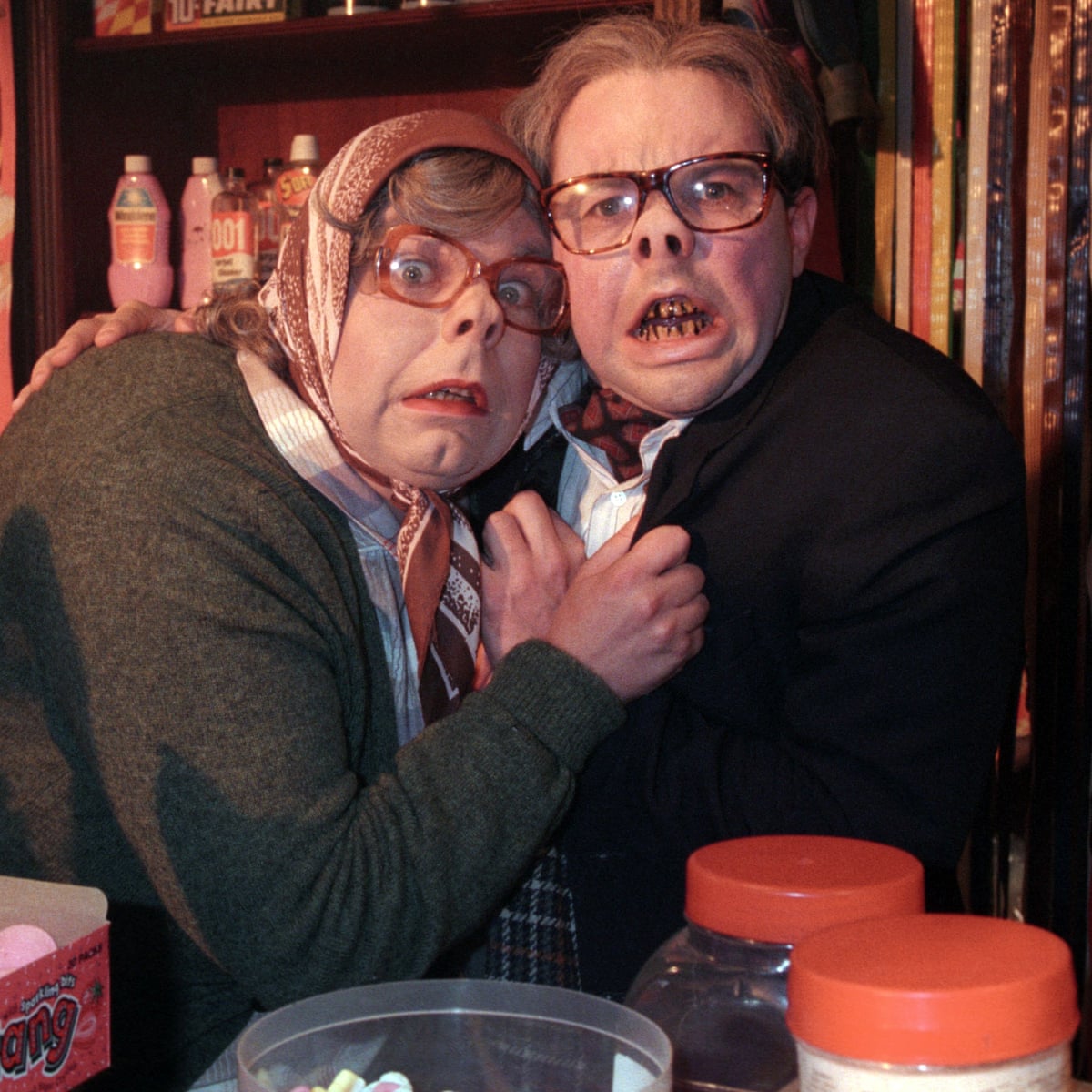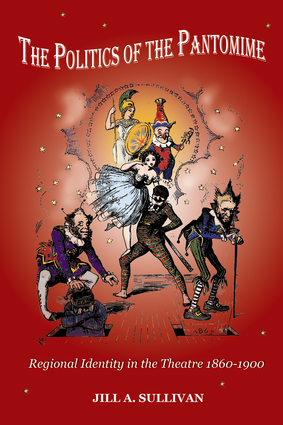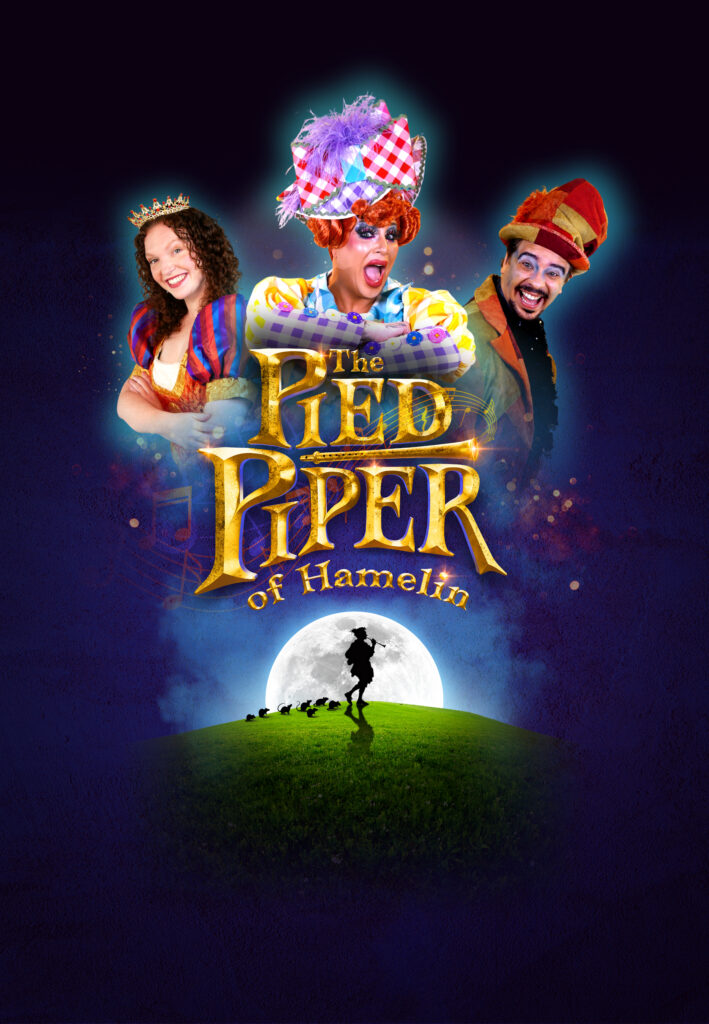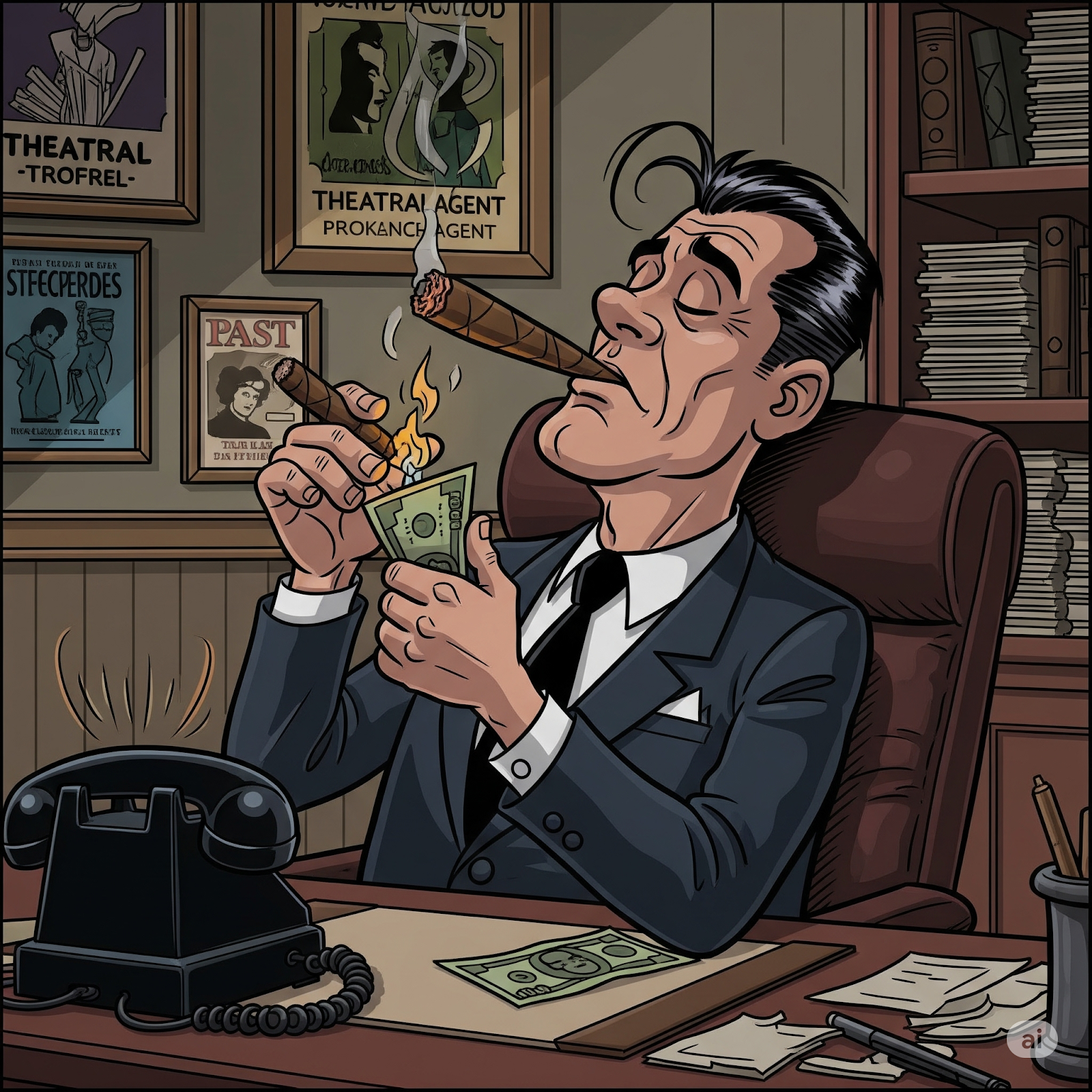It seems like forever ago that I started my PhD research exploring the question: "How does contemporary British Pantomime respond to Evolving Ideas of Identity?" For those of you that have continued reading my blog, I'm sure it seems like even longer!
In truth, it's only been three years (nearly), and the end is very firmly in sight. In that time I have:
- interviewed dozens of panto big wigs,
- held town hall meetings with my audiences,
- gathered stakeholder feedback,
- recorded dozens of hours of audio diaries,
- innovated the form, and
- analysed my companies data to death.
- And read about a bajillion books about pantomime history.
- And another bajillion about identity politics.
- And at least two bajillion about academic methodology (don't even...)
- Oh, and best of all - I've produced 7 pantomimes, which I used as a test bed to put my research and ideas into practice.
My Top Two Innovative Contributions to the Form!!!!
* Application of the Hyperlocal Lens *
* The Repositioning of Meaning-Value with a Gifting Paradigm *
"What are you on about?"
"Why those two things?"
"How did you get to that decision?"
So many questions! I know - it's exciting, isn't it? Let me explain... from the very beginning. It's a very good place to start. (Apparently - Julie A.)
The Big Bang (T = -6 months)
I got the idea to start my research after a very effervescent conversation about race and Aladdin. The conversers were a diverse bunch with loads of different opinions, and I found myself defending the "it's traditional" corner. Before anyone gets any silly ideas: I wasn't in the "slap on some yellow face paint and pigtails" corner, just the: as long as everyone is respectful, it's surely OK to set it in China camp.
 |
| The Emperor of China, Stockport Plaza (2012). Yellow masking tape over eyes, Wickes (£3.50 per roll) NB Going by the poster, the upcoming 2025 production features the same costume track! - hopefully the make-up pad has run out of yellow by now... |
I love a good argument! I'm not even very averse to a bad one, from time to time. However, in this case I found myself frustrated - not because I was losing. Because I was shut out. I was white, middle-class, privileged - I had no first hand experience of "feeling yellow," or racial discrimination - and therefore, my view was deemed worthless and therefore disregarded. I'm eager to concede that there is huge and irreplaceable value to be derived from those with lived experience, both in the perspective that it may offer and also in the profundity of subjective truth that it can unlock - however, doing so would not help me. Even if one could change race, to do so just to win an argument would surely be the worst type of colonialism.
With all other options off the table, it is to my great chagrin that my antagonistic-ape-brain conjured up for me a secondary, more obscure route by which I might enhance my credibility: "All you need to do" it whispered, "is become the world's expert in that field, and then, come back in 4 years time and retort "AHA! My opinion does matter!"
Stupid, petty, peevish ape-brain... why are you always inventing the most ridiculous strategies just to try and defend your overinflated ego?!
Six months later I was enrolled as a PhD candidate.
Aladdin (T = 12 months)
That Christmas we produced Aladdin at the Met in Bury. It was the second time we'd staged the show - this time in a much bigger town with vastly different demographics. Our production practices were informed by what I was learning - we tried different approaches to casting, rewrote the script to reflect different heritages of the actors, even remade a few costumes. However, I didn't lose sight of the main aim: vindication.
The production did end up with a more ethnically diverse cast, but it also had:
- Traditional Peking location
- Glittery Chinese set and cloths
- Chinese policemen
- An Empress in traditional style costume and black wig
- Hanfu inspired costumes
- A traditional Chinese liondancer costume
- Travel to Egypt
- Traditional laundry scene
- Traditional character names
- A gong sound effect
- The Old Bazaar in Cairo
- Sand dance choreography
"There," I thought, "that proves it - it can be done." I should have felt vindicated, but actually, I felt like... I was answering the wrong question.
The tropes of Aladdin were solidified over 100 years ago, in Victorian Britain - a Britain that was very, very different to the country we live in today. Not just demographically, but culturally, and also internationally. The reasons why the Victorians included all these conventions in the panto have either disappated or withered away.
"OK," I thought. "So, you can defend Victorian Aladdin. But so what? Why should we bother?"
If the Victorians used pantomime to build their identity, why shouldn't we? If pantomime could help build an empire, what else could it do? It seemed to me, these were much better questions!
 |
|
Rumpelstiltskin (T = 12-24 months)
My first attempt to explore these questions was Rumpelstiltskin.
 |
| No. Days to rehearse the play: 8 No. Days for Will to make the cartouche hang straight: 1.5 |
It was a familiar title with a mostly-forgotten story, which was great for me. I bastardised the script and turned it into a play about otherisation and in-/out-grouping dynamics. Even though the production felt super traditional, it challenged fundamental tenets of the form including what it means to be a villain and the Boalian positioning of the audience as spect-actors. I loved turning everything upside down, encouraging the children to sell their souls to Rumpelstiltskin in act 1 and hearing the whole audience chanting spells for his revival by the end. Dramaturgically it had such depth, we had some audience members weeping, yet we managed to deliver it with a lightness of touch that made it relatable for all ages. It was in the words of the Manchester Evening News a "family crowdpleaser that punches well above its weight."
 |
| Nancy Penvose (left) was so dedicated to the role of Rumpelstiltskin she purposefully lost 4" of height during rehearsal to make him appear more vulnerable |
It was a great first foray into how panto could address issues of identity. But it did so passively. It was time to try a more active approach.
The Victorians didn't use panto to talk about identity, the used it to create identity. "I'm going to have a go at that," I thought. Then spent a few months wondering what identity I wanted to create.
A great fact I'd picked up somewhere from some book that I'm currently too lazy to look back up is: by 1900, 60% of all London pantomimes were staged at least partially in another country. Aladdin was incredibly popular, but even titles like Cinderella had been spruced up (with one production being set in Ethiopia) and seemingly every time we had a war (which was a lot of times, btw) some production of Jack and the Beanstalk would personify our opponent as the Giant. That's all well and good if you're trying to inculcate an imperial identity within an ethically homogenous, not internationally travelling audience. But I don't have one of those - so I'd have to do some more thinking.
The Hyperlocal Lens
During my research, I've been keeping a reading log. I'm now up to about 300 books, which is about right for a PhD bibliography. But unlike other PhD bibliographies, mine reads like marched through a library with a blunderbuss full library cards, randomly shooting at every disciplinary section and reading the first five books on any shelf I hit.
Partly this is because when I started I was so ill-informed that I had to get up to base level on pretty much everything all at once. I've read books on Victorian pantomime, the British Empire, Crip Theory, Feminist theory, Orientalism, Identity Theory, Identity Politics, Psychology, Post-Colonialism... you get the idea.
It was about this time, as I was getting immersed in Media Studies, that I came across the idea of hyperlocality: a way of thinking about geographically bounded shared cultural experience. Or in other words, things made for people who live near each other. It was a really interesting lens. Over the last 100 years, demographic shift had changed the make up of panto audiences so much that the rationale underpinning the conventions of the genre was increasingly unsound. Unlike Victorian audiences, modern pantogoers are not a sea of white, Christian, or even British faces - so what are they? Well, unless you're producing the Palladium panto... they are all local.
 |
| This is a local pantomime for local people! |
Ironically, Victorian panto producers were already onto this idea, long before Media Studies even existed. The go-to academic on the topic of regional pantomime production 1860-1900 is Jill Sullivan who first showed in her PhD thesis (2005) "the available empirical evidence has served to foreground the pantomime text as an expression of local concerns and political interests that were particular to each town and displayed an acute awareness of issues of regional identity and status."
Tip-off: Sullivan's book on the topic: "The Politics of the Pantomime: Regional Identity in the Theatre 1860–1900" is a fantastic read for anyone interested in the topic (as it was particularly for me, as it has a plethora of specific examples of pantomimes staged in Manchester.)

These hyperlocal conventions seem to get slowly shed by commercial producers during the twentieth century, as mass media shrinks first the country and then the world. Popular comedy routines become embedded, divorced from their original meaning and then stale. The pursuit of economies of scale lead to the consolidation of regional contracts into large portfolios of a small number of national players. The final death knell for hyper localism may well have been heard with the casting of international celebrities, as documented by the UKPA's Simon Sladen.
In the process, the form lost two things of immense value: urgent relevance and connection to their audiences. I want them back. And I think we can get them.
A note of caution: Victorian Pantomime production and contemporary practice face vastly different contemporary mores and demographies. Victorian pantomimes reinforced local identity as a foil against London-centred homogenisation of extent regional cultures. Modern pantomime must respond to modern audiences who increasingly originate from diverse locations and may include transitory and immigrant populations with few or no long standing ties to the local area and/or theatre tradition. When we use pantomime to reinforce local identity, we do so not to defend, but to create. For the modern producer, hyperlocality is an action, not a reaction - and as such, demands a greater level of sophistication, forethought and precision in its application.
Mother Goose (T = 24 months)
The next iteration of my practice was a hyperlocal production of Mother Goose which we made from scratch specifically for Saddleworth. I'm not the first person to reimagine this outdated story in the present moment - in our production, Mother Goose didn't wish for beauty or youth, but 100000 TikTok followers instead.
 |
| Despite his best efforts, hyperlocal puppy Toby was largely ineffective at installing the set |
Not only did we make it much more relevant for right now, at the same time we made great efforts to make it relevant right here. We made it hyperlocal.
I love Saddleworth, and so does my audience. So it seemed like the natural place to set the story. We went round the town taking photos of interesting and recognisable views - views which we then reimagined in our cloth designs. Saddleworth is a rural community, so I dumped the demon and brought in a Fox... from Fox Entertainment in Media City, Manchester (the valley and the identity of those who live there is distinct from, and contrasted to their giant metropolis next door). I wrote in dialect, and filmed VT sections around the town with local people and familiar faces, which we then projected as part of the show.
 |
| Imaginary villain Phineas Fox played by real-life fox Tessa Vale |
Outside the auditorium I called town hall meetings and took polls on what the audience thought was important. We visited local events throughout the year, in costume. We engaged with local drama groups, schools and charities, running workshops and competitions.
It was in the production of this show that I felt, as a practitioner, the reward I had hoped would have come from our Chinese-Aladdin. Aladdin had been my show. Mother Goose was Saddleworth's show. And the audience knew it!
Mother Goose led me to articulate another vital pillar of my theoretical framework:
Meaning-Value and the Gifting Paradigm
When I had started, I had viewed meaning as a thing to be owned, as exemplified in thoughts such as: "You don't own the story Aladdin, just because you've got Chinese heritage," or "I can use my production to create my own meaning."
I have now come to understand that greater value of meaning is realised not through the act of claiming ownership over it, but through the act of giving ownership away.
Pantomime is a commercial form. Producers make shows to sell. The most successful and canny producers have a very firm understanding of their target audience: demography, price points, access requirements, celebrity draws. Their production processes are well-oiled machines, turning out palatable productions that equate to bums on seats. One might say that these producers make these shows for their audience. This is a linguistic trick. Actually, they make their shows for profit. The pantomime production is a product, owned by the company, and rented out in 2-hour viewing slots to their target demographics.
If a pantomime production were truly made for an audience, ownership must be exchanged. Production processes are still acts of creation, but not of a product, but of a gift. The distinction is hugely important.
A product is something you can buy off the shelf, generic, available to anyone, anywhere. Commercial producers love making products - products are very profitable. They can be made to a blueprint by on a schedule, on a line, by workers who only do one thing. Products can be made from interchangeable parts so they are easy to replicated, standardised and predicted. Products are replaceable. When somebody buys a product, they buy one instance; the company retains the blueprints and the processes to turn out another instance, and another and so on ad infinity.
When you make a gift for someone, you do so with that person at the forefront of your mind - from the start to the end of the process/. You think about what they already have, and imagine what they might need or want or be delighted by. To make a gift is to make something bespoke, one-off, especially for them, especially by you. When you give a gift, you relinquish control. It still remains your creation - just as one might recognise a painting as "a Picasso," without implying Picasso still owns it - it just stops being your thing.
For all the reasons commercial producers love making products, they really don't like making gifts. Even making a gift for someone you know takes thought, creativity and imagination - and the process is ten times harder if it's someone you only see once a year. Worst of all, even if you make the perfect gift, once you've given it away, you have to start over again. Different gifts suit different people - a fact much attestested to by, and at the annoyance of, every Christmas Eve shopper who wishes they could by 12 of one thing and call it quits.
5 signs your show is a product, not a gift.
- The references are interchangeable.
- "It could be worse, you could be in <insert name of local town>".
- The jokes are replicated.
- Same jokes as last year?
- Same jokes as the production company other shows?
- The roles are archetypes not characters.
- The actors play DAME and COMIC, not SARAH and BILLY.
- The costumes and set are a hodgepodge of what the producer/hire company/actor has in stock
- "We'll work out something funny to say when he comes on during rehearsal."
- It contains scenes, routines or lines that somebody else wrote for some other play or film, for some other actors in some other context (and possibly some other generation.)
- "We'll do that bit - you know that whatshisface does - does anyone remember how it goes?"
The Pied Piper of Hamelin (T= 36 months)
This year's production in Bury will be testbed for my theories and the culmination of my research. Everything about the production is hyperlocal, from the ground up. It's been a heck of a task to prep everything, but with 6 weeks until rehearsals, I've got a feeling we're going to give over something quite extraordinary to the people of Bury this Christmas.
There's no space left in this blog to explain how we've applied the lens of hyperlocalism, and the framework of meaning-gifting to all the different parts of our process. If you want that kind of detail you'll have to wait for the 100,000 word thesis to come out sometimes next summer. Not only am I recording my journey, I'm establishing recommendations for best practice - so we call all make panto better together.
Of course, if you don't want to wait that long, you can buy a ticket and come and see for yourself!

5 Signs to watch out for, that show The Pied Piper was made as a gift, not a product(and good ideas to nab and reinvent in your own practice):
1. Themes are relevant to this audience at this time.
Everyone in Bury gets a wish every time Bury FC are promoted
The villain is seeking to develop the land beneath the market
2. Local references, characters and plot points hard baked into the script, not added on!
PEEWEE: Where are all the black puddings? Have you checked upper Ramsbottom?
BEA: I did. I found something. But it definitely wasn't black pudding.
ORANGE PEEL: Quiet you two, or I'll invent the police and have you all arrested!
3. Comedy and meaning emanate from the shared experience of the local audience.
Singing.
Market day in the borough of buryhalf hour wait for a table at spoonshalf a mile tailback into buryGrind to a halt onThe b-road from BoltonAnd you’ll be here soon!
4. Physical elements are designed or sourced specifically to facilitate the moments made by the script-in-performance.
eg, The front cloth is a map of the town
the portals are Peel Tower and Bury Market sign
the mayor is costumed as an Orange (referencing famous Buryite Robert Peel)
5. The community are engaged with during the process, not just at the moment of transaction.
Audition slots set aside for local residents. Local casting.
Opportunities made available for local communities and creatives
Local businesses sponsoring access provision
Follow up surveys and opportunities for feedback


















